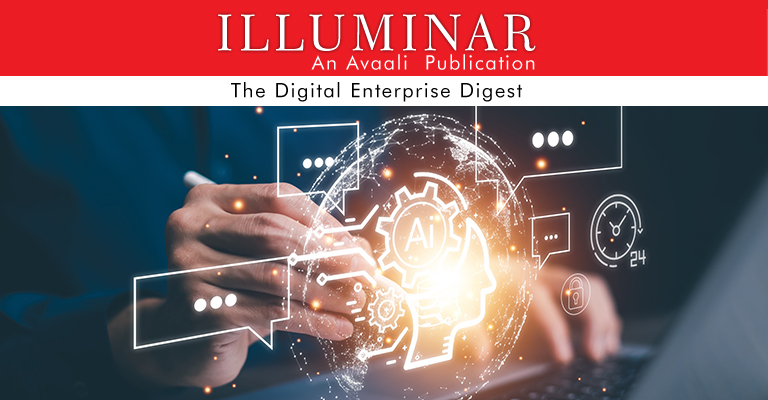Personalization at Scale: Leveraging AI to Deliver Tailored B2B Customer Experiences

In today’s hyper-connected world, where B2B customers are inundated with information and options, delivering personalized experiences has become essential for businesses looking to stand out from the crowd. However, achieving personalization at scale presents a significant challenge for B2B enterprises. Traditionally, personalization efforts were manual and labor-intensive, limiting their scalability and effectiveness. This is where Artificial Intelligence (AI) enters the picture, offering advanced tools and technologies to analyze vast amounts of data and deliver tailored experiences to each customer efficiently and effectively. Let’s delve deeper into how AI is revolutionizing personalization in the B2B space and explore some compelling statistics that highlight its impact.
- Understanding the Importance of Personalization in B2B
- The Challenge of Scaling Personalization in B2B
- Leveraging AI for Personalization
- Driving Revenue Growth through Personalization
- Enhancing Customer Engagement and Loyalty
- Real-Life Examples of AI-Powered Personalization
- Overcoming Privacy Concerns
- Conclusion
Personalization goes beyond simply addressing customers by their names; it’s about understanding their unique needs, preferences, and pain points. According to research by Salesforce, a staggering 84% of B2B customers say that being treated like a person, not a number, is very important to winning their business. This underscores the critical role that personalization plays in building meaningful customer relationships and driving business success.
While the importance of personalization is widely recognized in the B2B space, many businesses struggle to scale their personalization efforts effectively. A study by Average found that while 93% of marketers agree that personalization is important for meeting their business objectives, only 32% say they are satisfied with their ability to personalize their marketing efforts. This disconnect highlights the challenges inherent in scaling personalization and the need for advanced technologies to address them.
AI-powered personalization engines are transforming the way B2B enterprises engage with their customers. These sophisticated algorithms can analyze vast amounts of customer data in real-time, including browsing behavior, purchase history, and demographic information, to deliver highly relevant and timely recommendations. According to a study by Accenture, AI could boost profitability rates by an average of 38% by 2035 in industries like wholesale, retail, and B2B services through enhanced personalization. This illustrates the immense potential of AI in driving business growth and competitiveness.
Personalization isn’t just about enhancing the customer experience; it’s also a powerful driver of revenue growth. Research by Boston Consulting Group reveals that companies that create personalized experiences for their customers are seeing revenue increase by 6% to 10%—two to three times faster than those that don’t. By leveraging AI to deliver personalized recommendations and offerings, B2B enterprises can unlock new revenue streams and drive sustainable growth in today’s dynamic marketplace.
Personalization isn’t just about driving transactions; it’s also about fostering deeper connections with customers and building long-term loyalty. A survey conducted by Epsilon found that 80% of consumers are more likely to do business with a company if it offers personalized experiences. Furthermore, 44% of consumers say that they will likely become repeat buyers after a personalized shopping experience. By delivering personalized experiences that resonate with their customers’ needs and preferences, B2B enterprises can cultivate stronger relationships and inspire brand loyalty.
Several leading B2B companies are already harnessing the power of AI to deliver personalized experiences at scale. For example, Amazon’s recommendation engine analyzes customer browsing and purchasing behavior to provide personalized product recommendations, driving significant revenue growth for the e-commerce giant. Similarly, Salesforce’s Einstein AI platform helps B2B marketers personalize email campaigns by analyzing customer interactions and predicting the best content and timing for engagement. These real-life examples demonstrate the tangible benefits of AI-powered personalization in driving business outcomes and delivering value to customers.
While personalization offers significant benefits, it’s essential for B2B enterprises to address privacy concerns and build trust with their customers. According to a survey by PwC, 88% of consumers believe that companies should prioritize protecting their data. By implementing robust data privacy and security measures and being transparent about how customer data is used, businesses can alleviate privacy concerns and ensure that their personalization efforts are met with trust and confidence.
In conclusion, personalization at scale is no longer just a competitive advantage; it’s a business imperative for B2B enterprises looking to thrive in today’s digital age. By leveraging AI-powered technologies to analyze data, extract insights, and deliver tailored experiences, businesses can drive revenue growth, enhance customer engagement, and foster long-term loyalty. However, achieving personalization at scale requires a strategic approach, advanced technologies, and a commitment to customer privacy and trust. With AI as a key enabler, B2B organizations can unlock the full potential of personalized customer experiences and position themselves for success in the competitive marketplace.













